FEATURE: Lolita in Wonderland - The RinRin Doll Interview!
A few words about post-pandemic Harajuku, Vtubers, and music with a fashion icon
I first met RinRin Doll in Japan in early 2013. Since then, I’ve often bumped into her around Tokyo’s famed Harajuku ward, where she made a name for herself as a model and influencer specializing in lolita fashion. RinRin’s keen sense for street fashion trends, as well as her humor and honesty, has always made her a fun person to talk to. This is a conversation we had in summer 2023 that touches on post-pandemic Japan, the rise of V-tubers, and RinRin’s emerging musical career.
TokyoScope: Hi RinRin! The last time I interviewed you was quite a while back. For the sake of new readers, could you give me a brief biography and tell me exactly what it is you do?
RinRin Doll: When we first met in 2010, I was just starting out and becoming a dokusha model (a reader model, or an influencer for print media) in the Lolita Fashion scene. Since then, I have been working as a YouTuber, social media influencer, model, guest speaker, consultant, music creator, and an English/Japanese MC for shows featuring kawaii culture. Now, after all these years of working in the industry, I have the opportunity to travel around the world doing tea parties, fashion shows, talk shows to support and connect those who love this fashion. And since I'm originally from America— I believe this gives me a unique perspective and a drive to connect those who love kawaii fashion within and outside of Japan. Last year, I started doing a pop-up select shop called RinRin Boutique, bringing my favorite brands to the events I do, as well as this year, creating music as a fantasy lolita pop music unit: Bonjour Suzuki and RinRin Doll, focused on lolita fashion and kawaii culture.
You mentioned that you started out as a dokusha model. Could you explain what that entails?
A dokusha model, or "reader model" in English, is someone who is selected from a group of individuals who read fashion or lifestyle magazines. They become influential figures or style leaders within a particular scene. Most models featured in the magazine would be considered a dokusha model.
How has the dokusha model scene been affected now that many of the fashion subculture print magazines in Japan are no longer around?
There are currently not many print magazines covering the subculture anymore, and with the decline of print magazines in this subculture, the term dokusha model is no longer used much in this area since it's a magazine term. However, that doesn't mean dokusha models don't exist, there are magazines outside of this subculture that still continue to use the term dokusha model, as well as the existing gothic lolita dokusha models continue to create content on social media.
The last time I interviewed you, we were in the midst of a significant transition from magazine culture to the rise of influencers and platforms like Instagram, which really disrupted the Fashion & Beauty space. Now, with the emergence of AI, CGI models, and VTubers, we are entering yet another new era. What are your thoughts on these changing dynamics?
AI is still a new frontier for me. It seems like an entirely new world and a new way of creating content, art, and ideas. However, there is an ongoing debate about its authenticity and whether it is derived from existing ideas or individuals. So, while I haven't fully grasped the extent of AI's impact on our lives, I recognize that it is here to stay, and I am studying it to better understand it.
I haven't really associated AI with CG models or VTubers, but there are people developing text-based AI models that interact with humans, among other things. So that’s another new frontier to think about.
Actually, during the pandemic, I was working as a VTuber for one of my clients.
Really? Were you portraying a character?
I provided the voice for the VTuber and I also served as the producer, for a character that belonged to another company. VTubers had a surge in popularity during the pandemic. Initially, I had concerns about it because producing and working as a VTuber meant working without what I’m used to: my physical self and all my experiences I had up until now. I had to become a new identity to create content using a new set of tools and my core creative interests. It really put my content creation skills to the test, testing the limits of 3D motion capture, doing live singing performances and dancing, building things, creating variety shows, and playing games, of course. I couldn’t rely on the attachments and experiences that helped shape who I am. But I found it quite rewarding because I ended up building a new community and making new friends who liked what I was doing. I also liked that they liked me for me when I’m just talking about random topics. It’s really nice and I do miss it. Whether or not this trend will replace real people is another matter, but I do believe it opens up new possibilities.
As an influencer, how would you rate the current social media platforms? Are you and your friends migrating to Threads?
Everything is changing so rapidly that anything I say now would likely be outdated next week. However, I actually signed up for Threads today, literally just today. I was never particularly good at using Twitter, so it didn't have a significant impact on me personally. But Twitter is the primary platform in Japan, so it does heavily influence artists, illustrators, designers, and all the individuals within subcultures who rely on it. Considering the recent limits on Twitter, I believe people might migrate to Threads for the sake of stability. I think many creative people might want to transition from Twitter to Threads.
What about video platforms?
TikTok has certainly made a big impact and it seems like it's here to stay. However, when it comes to long-form content, YouTube still holds the top spot. Actually, I took a break from YouTube during the pandemic.
You mentioned the pandemic, and that's obviously like the biggest thing I think that's happened to us all recently. How did you handle it?
I started representing myself starting in 2020 and it had been a great growing and learning experience. But yeah, it was really dark. In the beginning of 2020, no one around me thought it would have such a huge impact. But by the time April came by, I had lost all my recurring jobs completely. Having to pivot… I think that was the biggest theme, I guess, with everyone that I was talking to. I had to start freelancing doing new types of work I’ve never done and ended up creating a new business because the beauty, fashion, and travel industries completely paused and I was also too sad to do much content creation. Being unable to see my family, worrying about everyone’s health, losing loved ones, and watching the devastating news all around the world while being shut in my room not being able to do anything about it. It became too much. But it also sort of forced me to grow and try new things.
What was Harajuku like during that time?
I started doing video interviews with people in Harajuku in 2019. I kind of took a break during the lockdown, but I started up again when we were able to travel a little bit and go outside. So, I tried my best to interview people during the pandemic as well. But during that time, everyone was trying their best to still live a normal life and enjoy fashion, but it was really tough. I took some b-roll footage of Harajuku during that time as well, and you could definitely see a difference. There weren’t many visitors and lots of shops closed down. Shops didn't find a need to continue paying for a physical space when the foot traffic was not enough to warrant that space.
I do think everything is recovering now, though.
We’ve talked a lot about how the pandemic changed things and how technology is changing things, but what about Lolita fashion? Has it evolved at all recently?
I think the whole subculture fashion genre went down in Japan, especially during the pandemic. We saw that same phenomenon after the earthquake too. It felt, in general, inappropriate to dress up in such sad times and it was the same unconsciously too for me, too. I dyed my hair black after almost always having colored hair. I stopped wearing makeup for a while, too. I forgot how to put it on because I hadn’t worn it in so long. I didn’t buy new clothes and pretty much stayed monotone.
You can still see it on my Instagram where I am pretty much black most of the time. But I mean, it’s coming back. The color is coming back.
As for Lolita style, dresses are trending longer. They flow a little bit more and are a bit more natural looking. The lines aren’t as harsh as the classic cupcake silhouette anymore. I don't know if the pandemic influenced that at all or if it’s just a natural progression of how people like to change up their style. However, now that everything is returning back, there is a rise in Y2K fashion styles as well, with it bringing back the early days of lolita styles with the platform shoes, headdresses, use of cotton fabrics, simple dress styles, and sparkly accessories.
There’s also been a rise in popularity for Chinese Lolita fashion as well. And Chinese Lolita style tends to be more revealing around the neck, shoulders, and legs, since Chinese Lolita style tends to wear jumper skirts without a blouse and wear ankle socks. There’s also a lot of gorgeous gowns from Chinese lolita fashion brands. I love how it really brings lolita fashion to a whole new level of expression.
During the pandemic, more people also started to take photos at rental studios, instead of going to events like tea parties, and you can see wearing lolita fashion became a form of fantasy or escapism art as well.
Lolita fashion has been around for a long time now. Why do you think it has such durability whereas other Japanese fashion styles, like Gyaru or Decora for example, have come and gone outside of a few holdouts?
Those styles come with a high level of makeup artistry and dedication. You can’t work a regular job in Japan if you dye your hair a certain color. Actually, there’s been a renewal in Gyaru fashion and Decora fashion in Japan, but you’ll see more people who are not tanned or who have black hair dressing in those styles now. With the previous versions of Gyaru and Decora, the styles were so extreme that they put limits on people being able to work an office job. People needed to choose either the fashion or a full-time office job, but with Lolita fashion, it’s more about the styling.
Lolita fashion can be an item in your closet that allows you to transform into another side of yourself. Maybe you can’t wear Lolita to work, of course, but you can still enjoy that side of yourself in your free time.
Either way, there’s a sense of pride involved in wearing whatever style you love. And if it makes sense to you, and you feel good at the same time, then everything makes sense.
Is Lolita fashion a kind of cosplay?
Lolita is not cosplay because when you cosplay, you’re dressing up to be a certain existing character. With Lolita fashion, as far as I know, everyone treats it as fashion: it’s another extension of themselves when they wear it. So, it’s not about being somebody else, but there may be some people who do think of it differently.
Switching to music, I wanted to ask about your new collaboration Carnival Dolls with Bonjour Suzuki. How did this project come about?
This is a passion project between me and my friend Bonjour Suzuki (who I call Bon-chan). We’ve known each other since we first met at an Angelic Pretty fashion show many years ago. She was the musical artist guest performing at the show at that time, and we met and sort of hit it off and became friends. Over the years, she’s asked me to sing backup on some of her songs or work on a few lyrics and stuff like that. It’s been fun to hang out with her and see how musicians work.
We’d always talked about singing together, but we were so busy with our lives that it never happened. But during the pandemic we finally sat down and decided to collaborate on something. It was a cover of Santa Baby for my YouTube channel. That was really fun to do. Eventually, she decided to write a song based on her image of me. And, according to her, I’m cute, but I also have a dark and cool side. “It’s not common to be both cute and cool,” were her words (laughs). So, she thought it would be interesting to create a song with sounds based on that idea. So, we sat down and made our first song together, called “Carnival Dolls.”
It may be a little bit dark, but our message is to just enjoy the moment with us. Life can get dark but we’re surviving it in a sense, so just have fun when we can.
I hope our music can create a safe space for those who love lolita and kawaii fashion to enjoy themselves, to create a small pocket of cute atmosphere for people anywhere in the world who are listening.
Do you have a final message for the readers?
I’d like to inspire everyone to keep on discovering new things, learning new things, and evolving.
RINRIN DOLL LINKS



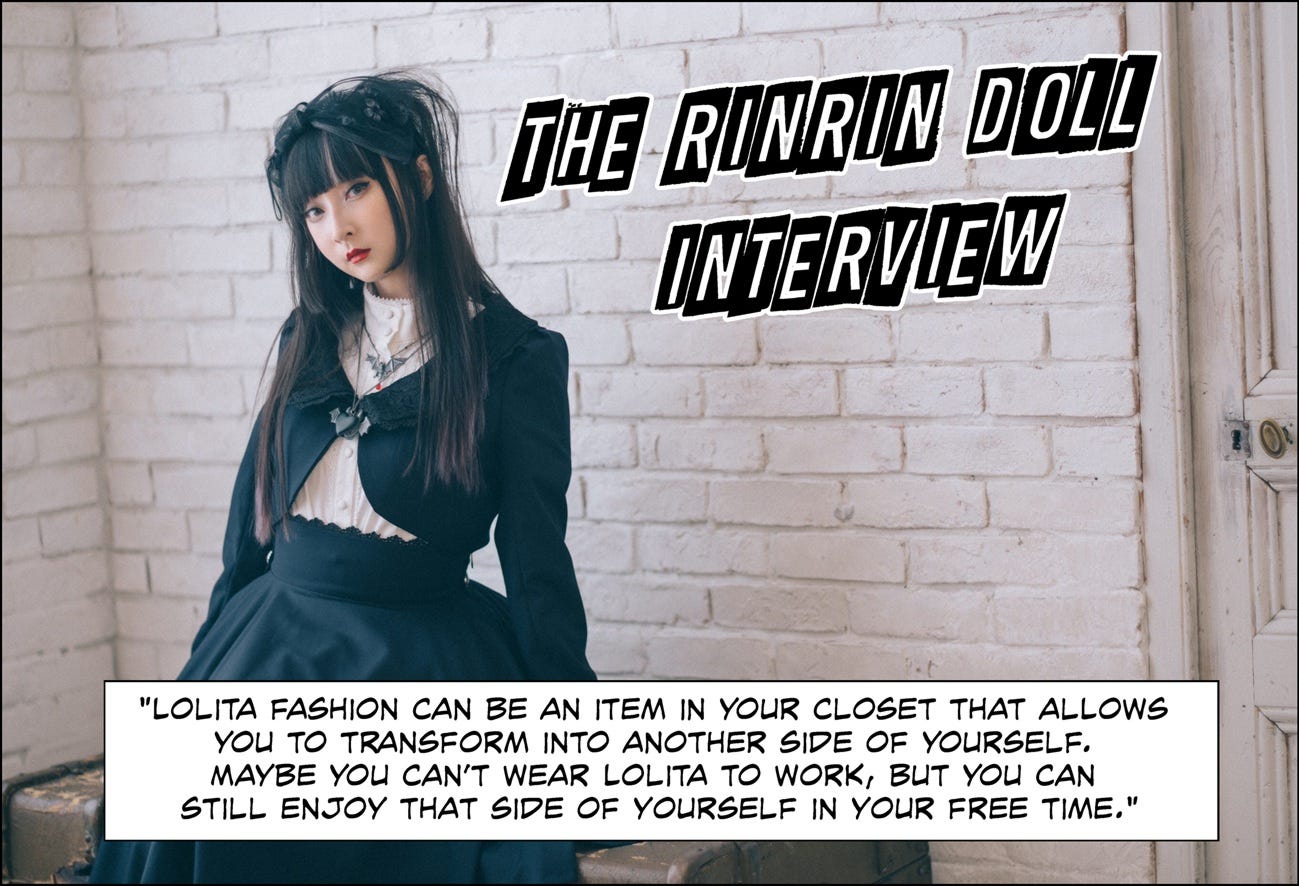
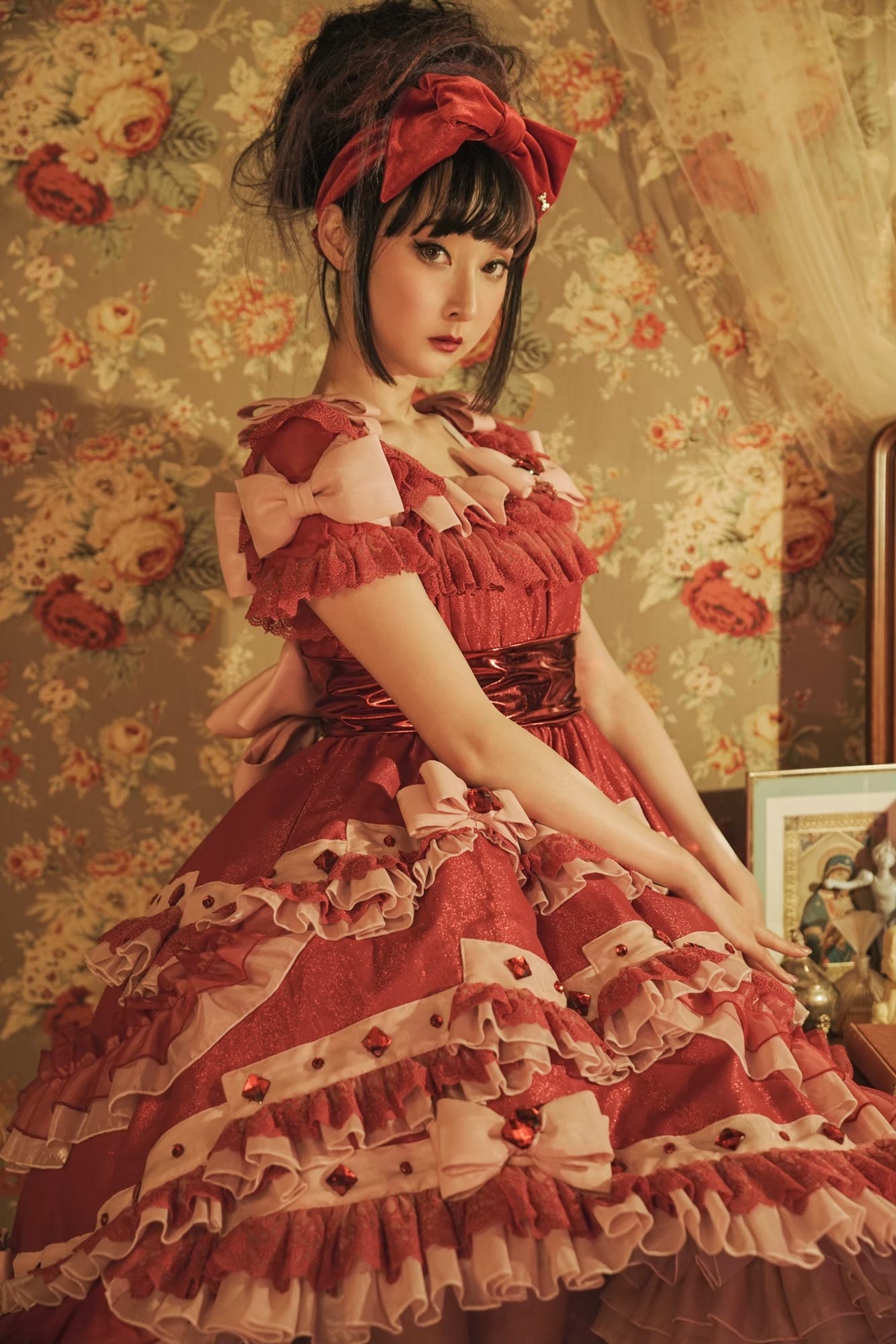
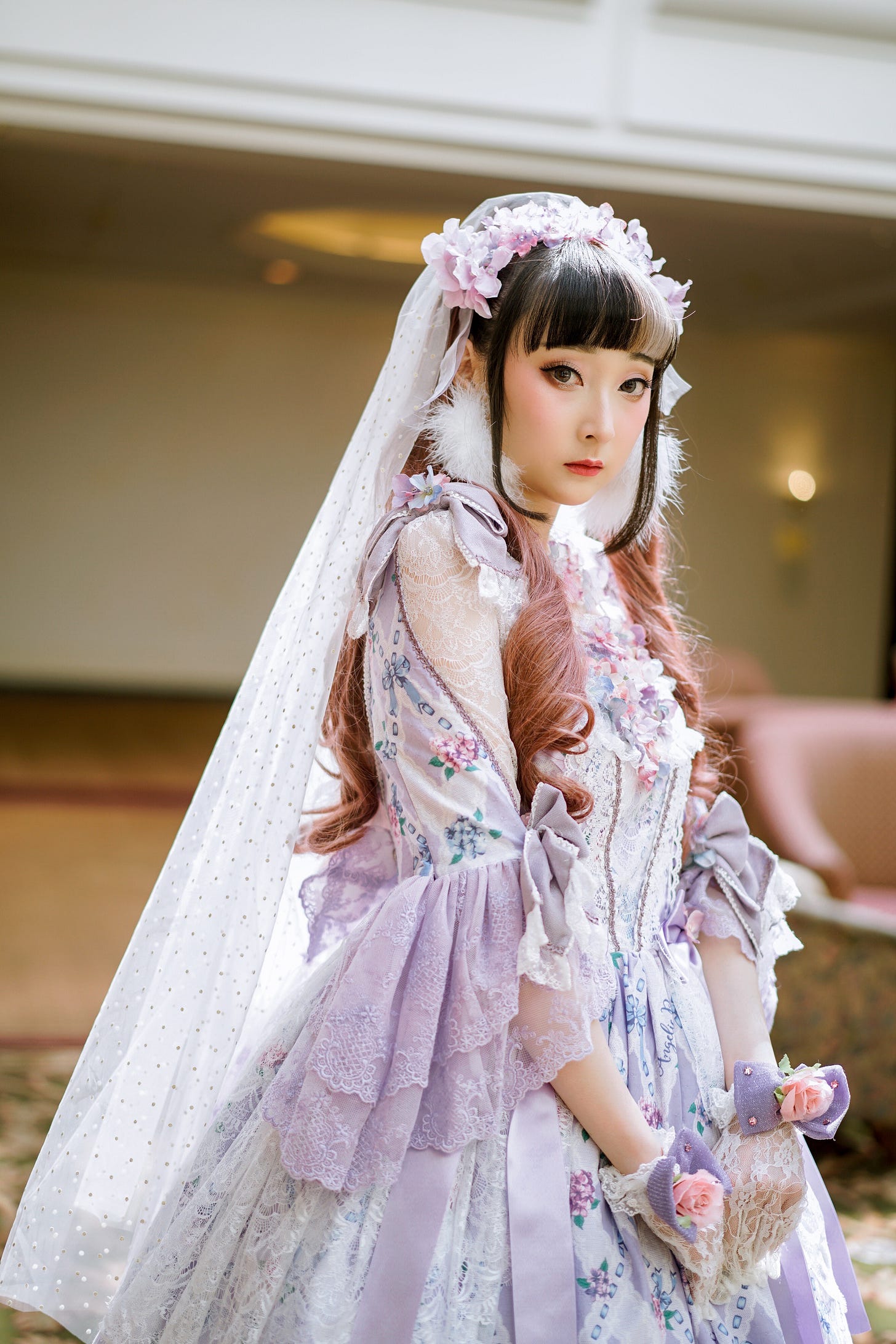
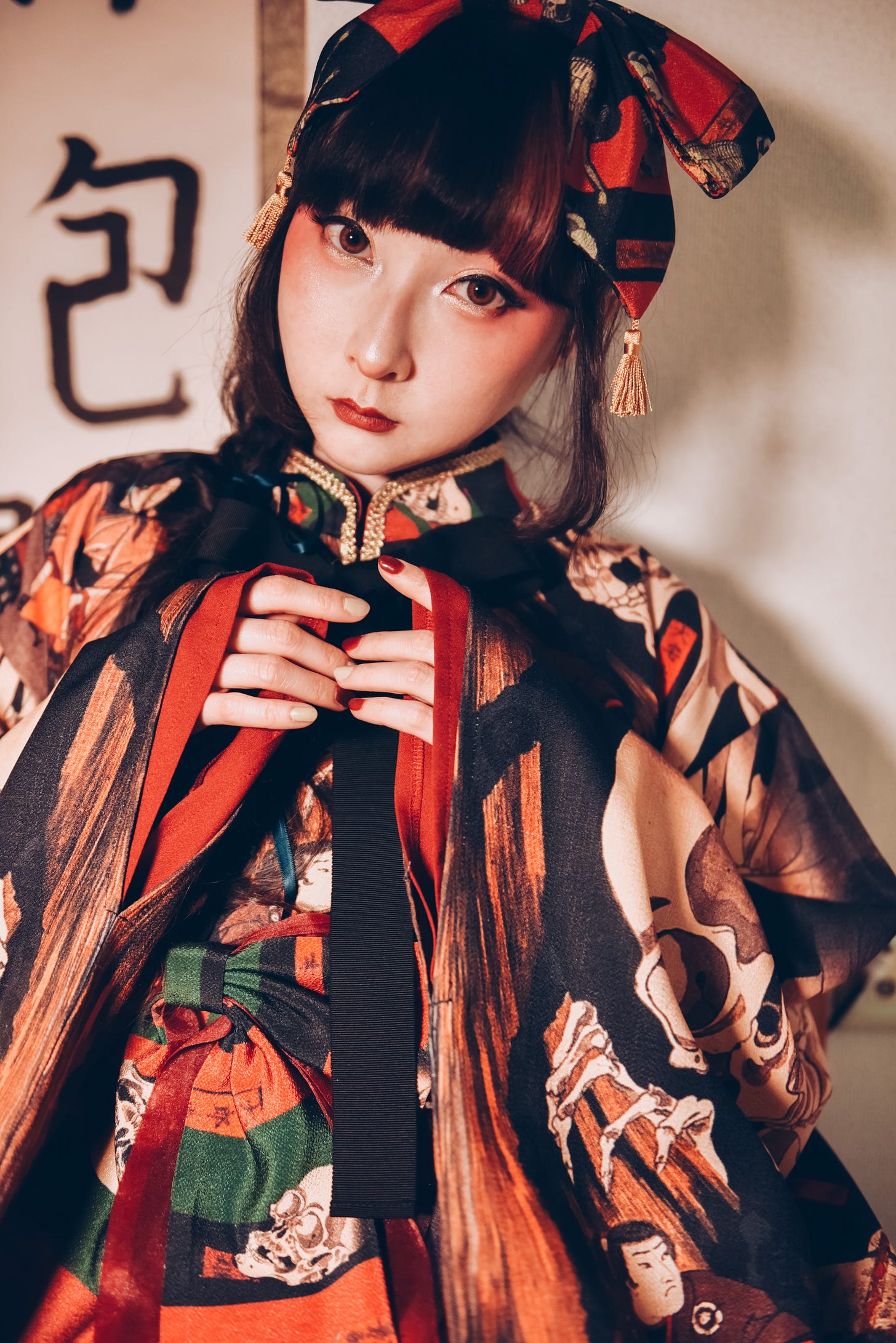
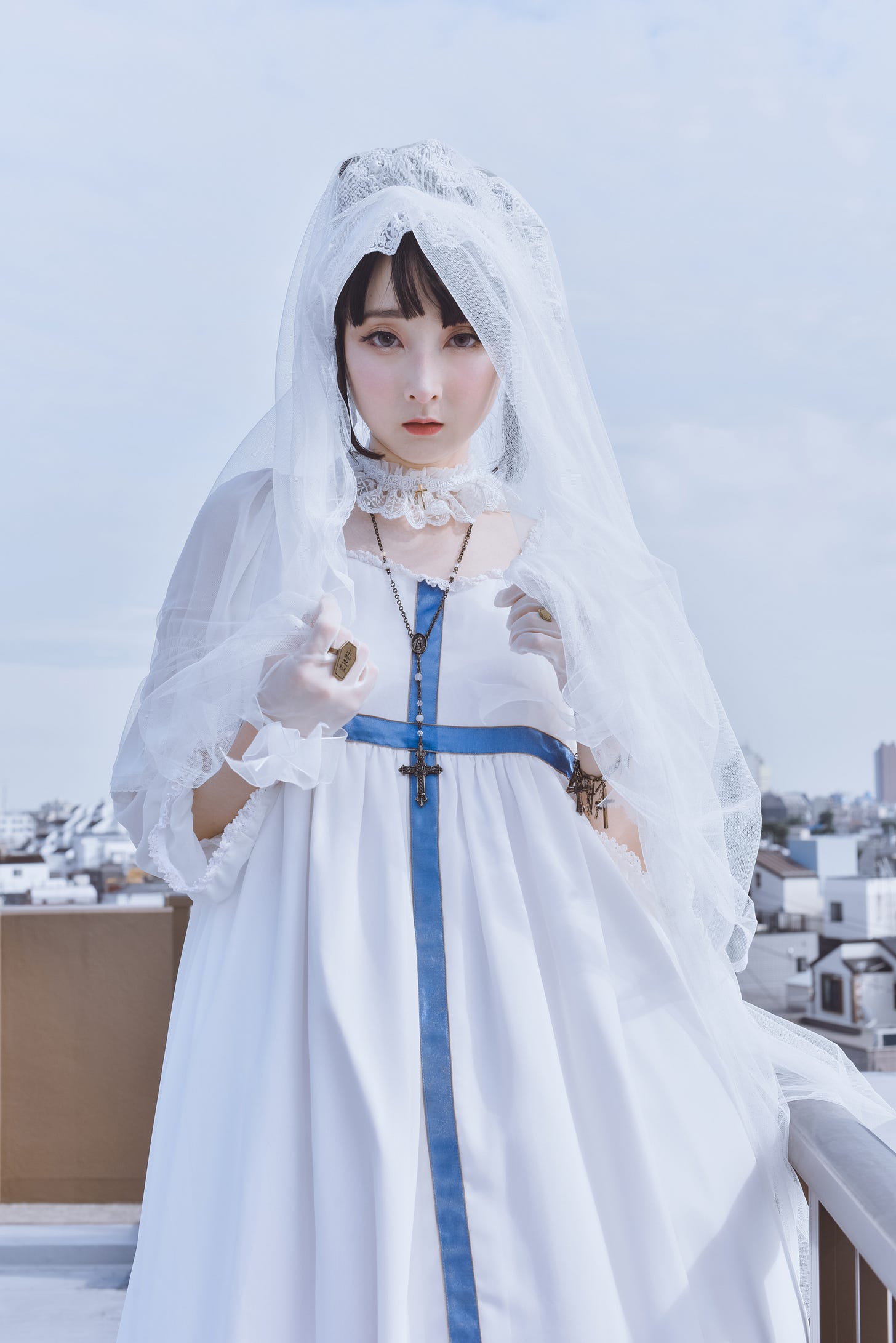
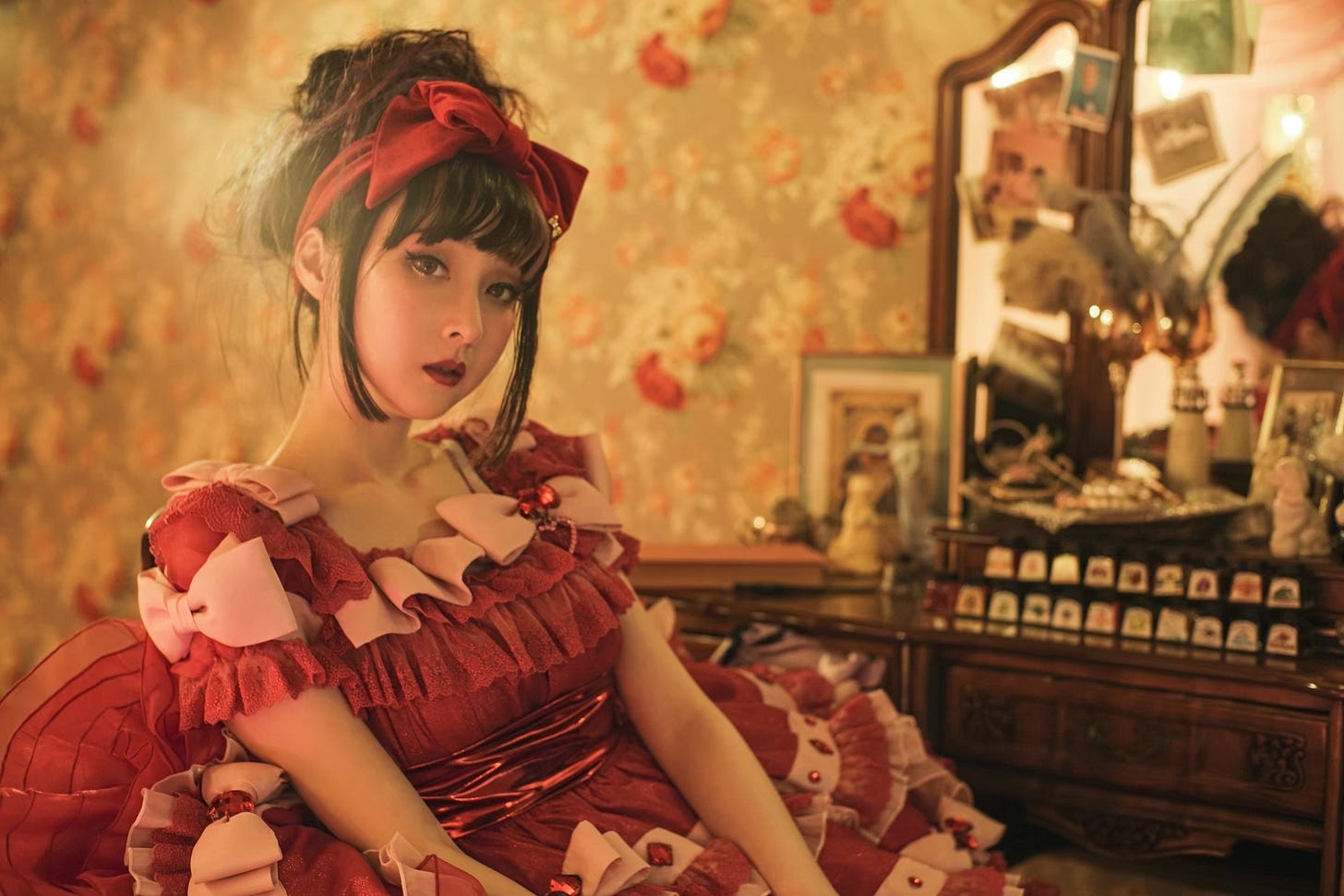
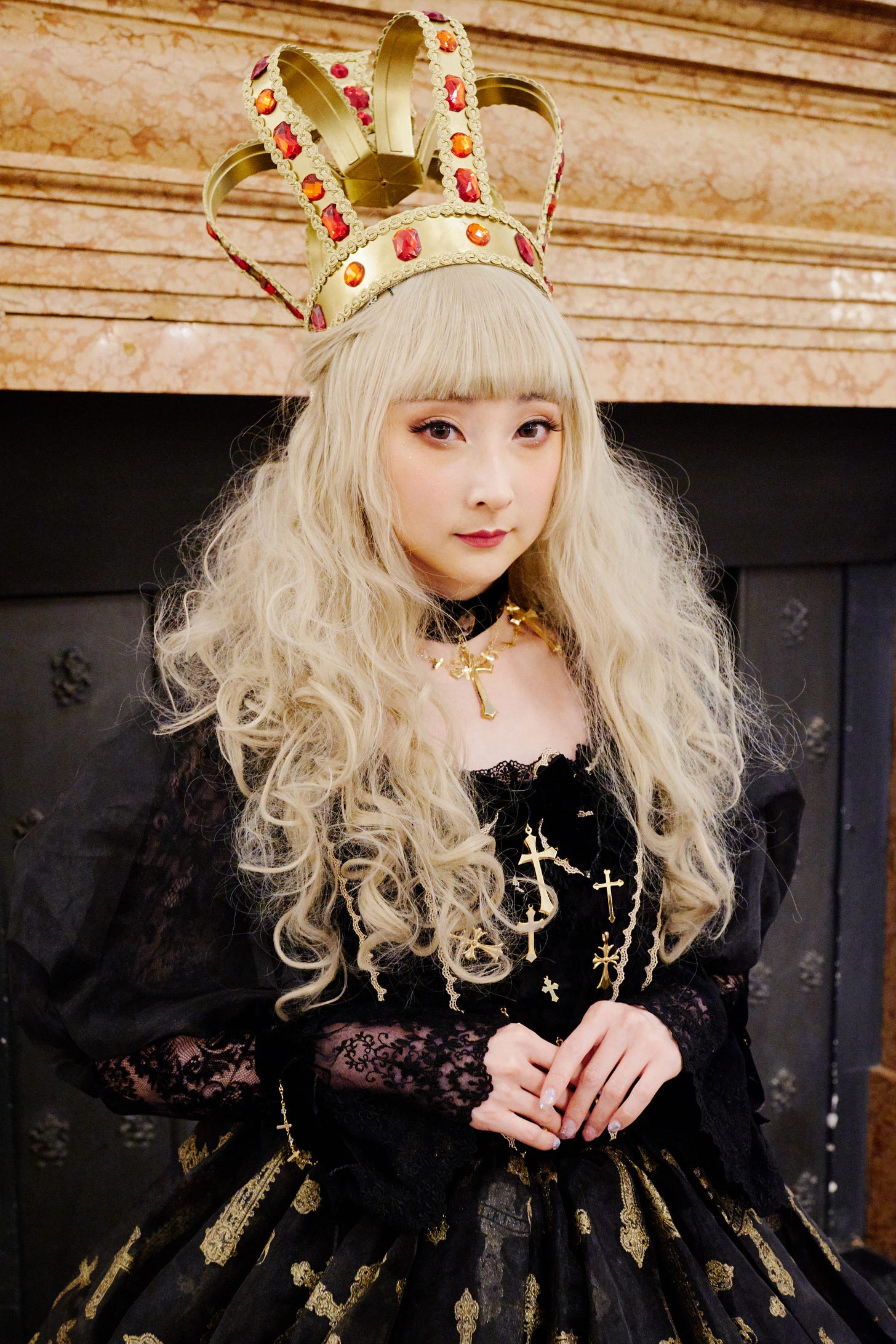
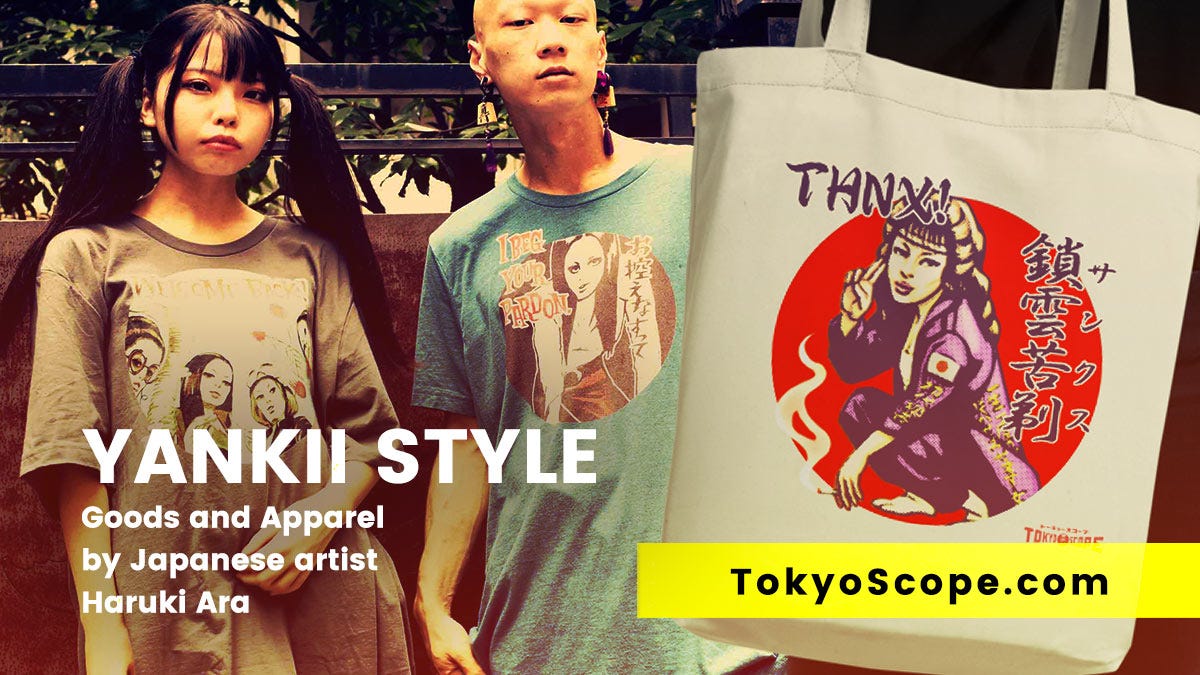
Yes, "cute and cool" is a great description of RinRin. Of course, she and her style and fashion are so lovely, but everything I've seen her do; hosting a TV show, videos and game streams, the music she's involved in, and from short interactions I've had with her online.... she IS really cool, and sweet and funny, too. RinRin's great at everything she does. I'm a huge fan.